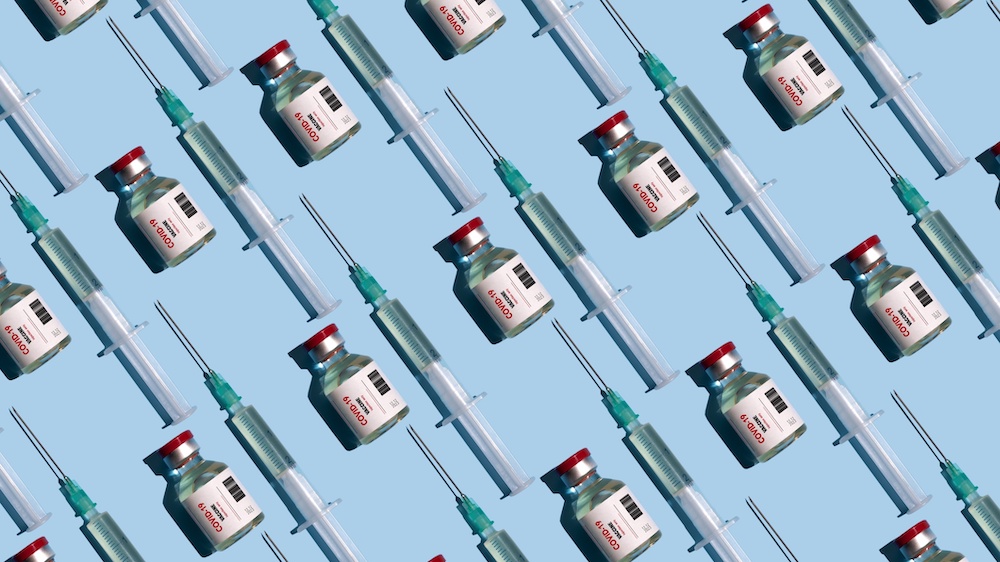If you’re interested in sharing your opinion on any cultural, political or personal topic, create an account here and check out our how-to post to learn more.
____
After millions contracted the coronavirus, trillions of dollars spent, and months in a cycle of lockdowns and loosenings, multiple COVID-19 vaccines have been developed. The vaccines will help end a global pandemic, which has left more than 400,000 Americans dead, and return the world to some semblance of normalcy — but only if people take them.
While COVID-19 has hit America hard, it has been particularly harsh on the Black community. According to the Centers for Disease Control and Prevention, Black Americans have case rates 1.4 times higher than white Americans. After contracting COVID, Black Americans are hospitalized at a rate 3.7 times higher and die at a rate 2.8 times higher than that of white Americans. Black Americans are obviously disproportionately affected by COVID-19, and they are least likely to take a vaccine.
A study by the National Association for the Advancement of Colored People and Langer Research Associates found that only 18% of Black Americans trust the effectiveness of the vaccines and only 14% believe they are safe.
If traditional vaccines work by exposing individuals to a weakened version of the virus, then many Black Americans have already been vaccinated. Not against COVID-19, but against public health messaging and recommendations.
In America, Black people receive second-class health care, coupled with an insurance and payment system that limits access to the weakened health-care systems in the first instance. These flawed systems have led to, for example, higher maternal mortality rates amongst Black women and misguided beliefs that Black people experience pain differently. Worst of all, Black Americans have also been subjected to horrific experiments conducted by the United States government. The most infamous event is the Tuskegee experiment in which, from 1932 until 1972, the federal government led 399 Black men to believe that they were receiving treatment for Syphilis, but actually denied them treatment in order to observe the effects of untreated Syphilis.
So when medical experts say “most people need to take the vaccine,” it often falls on deaf (or immune) ears within the Black community. The onus is on the government and medical professionals to course-correct. Structural racism has been intentionally built into the American health system over generations. The same intention must be used to dismantle the system and make it more accessible, equitable and to increase the quality of care for Black Americans.
There are four short-term steps that could help increase the number of Black Americans willing to take the vaccine.
First, there needs to be a well-developed public information campaign. There has been a shockingly small amount of information circulated about the vaccines. Commercials, social media ads and physical flyers with information should be disseminated. Additionally, those distributing the shots should be capable and willing to answer questions.
Second, celebrities and influencers need to be engaged and mobilized, similarly to the way celebrities are enlisted to drum up support for important elections. While mega-stars like Beyoncé and Jay-Z should be involved, local influencers like pastors and community leaders may ultimately prove to be more persuasive among Black constituents.
Third, incentives (including monetary incentives) should be provided to those who are very hesitant about taking a vaccine. Many are likely to oppose this idea. However, paying people to stop a pandemic that has cost trillions of dollars and hundreds of thousands of lives is a good investment. A vaccine does no good if the people most at risk do not take it.
Lastly, Black Americans (like everyone) must do their own research and evaluate the vaccines, using credible sources like the Centers for Disease Control and Prevention, the World Health Organization and the European Medicines Agency.
Even though vaccines are currently in short supply, steps need to be taken now to boost confidence in them. Neither vaccine authorized for emergency use has a long shelf-life. So when they are available in mass, people need to be willing to take them.
Trillions of dollars have been spent to develop COVID-19 vaccines and provide relief to people and businesses suffering from its effects. Although large swathes of Black Americans are “vaccinated" against public health messaging, it’s time to test the effectiveness of that vaccine. While every American, Black or otherwise, will not get the vaccine, it’s important that the same amount of effort put into developing the vaccine is put into its distribution and acceptance.

